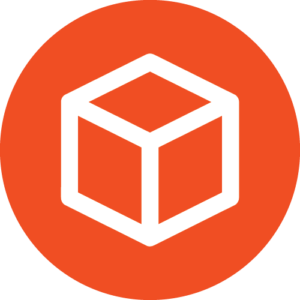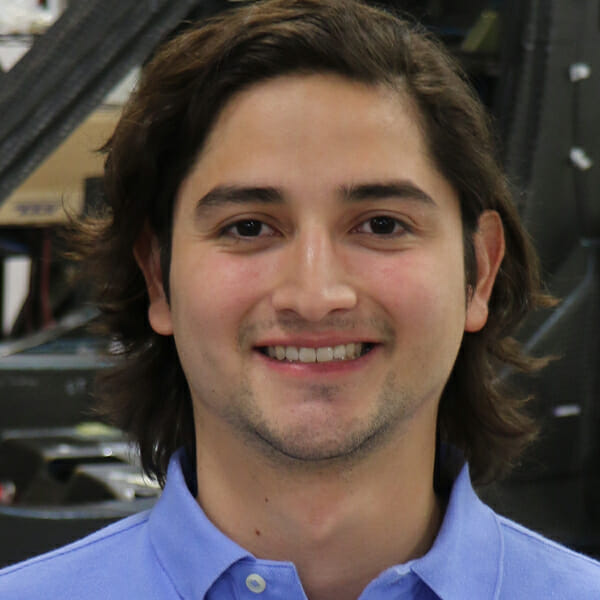
Nestor Castaneda
Senior Composites Engineer • Terrafugia
Nestor Castaneda is an engineer at Terrafugia, the company that built the first flying car, and the founder of 3DLAB, El Salvador’s first Fab Lab.
Photos courtesy of Nestor Castaneda
My dream is to have my own company in El Salvador and build something technological. El Salvador is known for coffee, agriculture, and tourism, but there are Salvadorans with great potential to make technical goods, so I want to empower them to create. We’re tackling the lack of technical education in the area by building an ecosystem that incentivizes people to make their ideas, and collaborate to build the future of El Salvador.
Nestor is a senior composites engineer at Terrafugia, known for building the first flying car. He works with the structures team to optimize design of parts in the aircraft. At Terrafugia, he aspires to lead the design of assemblies and systems of composite parts—materials with new characteristics created from two or more materials that hold different physical or chemical properties. Nestor’s long-term dream is to start an engineering firm in his home country, El Salvador. Interested in art and drawing from an early age, he became fascinated by the parallel practical and aesthetic aspects of fashion design in high school, but decided to pursue a more math- and science-based focus in his later education.
If there are no opportunities, create them yourself.
Nestor studied engineering at Drexel University in Pennsylvania. After developing an interest in material science while completing a few internships, he extended his schooling a year longer to graduate with an MS in mechanical engineering. While entering the aerospace field is not easy under any circumstances, it’s exponentially more challenging for those who are not US citizens. To stay in the country as a STEM student, Nestor needed to find a job that would sponsor him within 90 days of graduation. He started looking for jobs in the aerospace engineering industry but was repeatedly turned away because of his lack of US citizenship. Fortunately, his thesis advisor got him a job as a researcher in the university’s material science laboratory.
“What was most frustrating was when I received calls from companies saying they found my resume, I would interview, and then only at the end they explained they could not hire me because I am not a citizen,” Nestor said.
Nestor feels a responsibility to give back to his home country of El Salvador by empowering Salvadorans to design and create. He is a founder of 3DLAB, a 3D printing and fabrication lab in San Salvador, the country’s capital, where Nestor and his team are facilitating design education within the local community and increasing access to the tools needed to create and manufacture products.

PERSONAL HISTORY
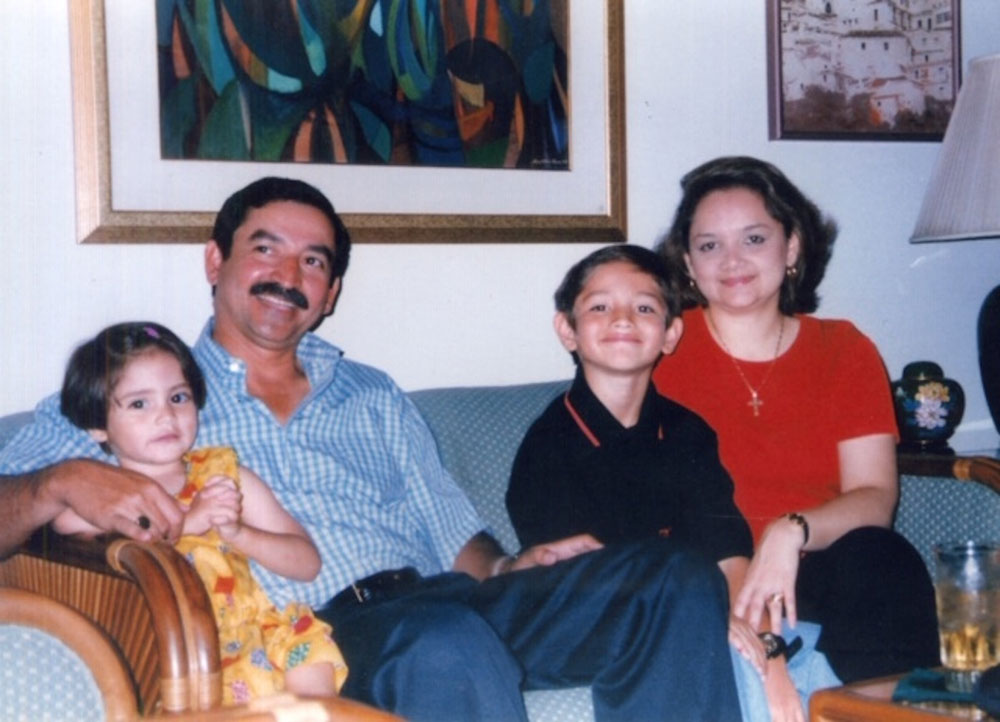
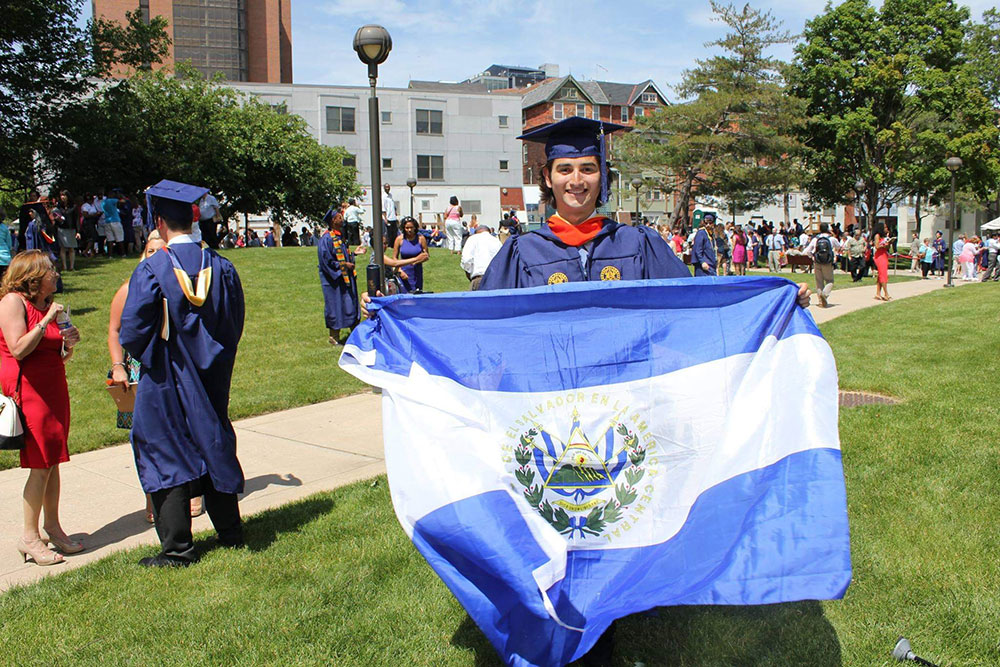
Discovering Design
Growing up in El Salvador, Nestor has loved art since childhood, first discovering its functional possibilities through fashion design. He was especially interested in smart and adaptive fabrics and the possibilities they possessed for the future. His family encouraged his interests and bought him a subscription to Vogue so he could learn more about apparel design.
“I always liked art and drawing and I went to private classes for art outside of school,” Nestor said. “Toward the end of high school, I became interested in fashion design. I liked that fashion is an applied art. You create a design that is beautiful but also useful. Regardless of what I was going to pursue as a career, I was always going to be doing art no matter what I did.”
Adventures in Aerospace
Nestor chose to apply to colleges primarily for engineering and business, choosing Drexel University for their educational offerings and scholarship programs. Nestor opted for Drexel’s accelerated Master of Science track and participated in their co-op internship program. His first internship was with a civil engineering firm, where he gained experience in blueprint drawing. He then worked at a biomedical device company, where he contributed to 3D modelling. Nestor then took a research position at Hochschule Bremen in Germany, during which he also worked at Airbus. His thesis advisor, Dr. Kontsos, connected him to the Airbus Group, an aerospace manufacturing company. This is where he first learned about composite materials and decided on his future thesis topic for his master’s degree.
Feeling the Pressure
Nestor graduated in 2015 with a Master of Science in mechanical engineering, and felt immediate pressure to find a job due to his international student status. After searching for a job for six months without finding a sponsor, Nestor sought advice from his master’s thesis adviser, Dr. Kontsos, who had just begun working with smart textiles to develop sensors and smart fabrics, and connected Nestor with a job as a researcher at the Center for Functional Fabrics at Drexel University.
In 2016, Nestor joined a team of Drexel student designers who competed in the SpaceX Hyperloop Pod Competition, which challenged designers to create prototypes for high-speed transportation pods with specific design parameters. Drexel’s team was chosen as one of the top 22 teams out of 120 to develop and demonstrate their prototype. Although the team did not win the competition, Nestor maintains that it was a valuable learning experience that confirmed his passion for the field he was in.
“During the summer, I felt like I needed something to push forward my interests to help me in the future,” Nestor said. “I found out that Drexel had a team participating in the SpaceX Hyperloop Pod Competition founded by Elon Musk. We had to create a pod for the optimal train with advanced technology, fast speeds, and the ability to levitate, to avoid friction with the ground. The goal of the competition was to get people excited and talking about the possibility of this technology.”
Nestor and the Drexel team at the SpaceX Hyperloop Pod Competition
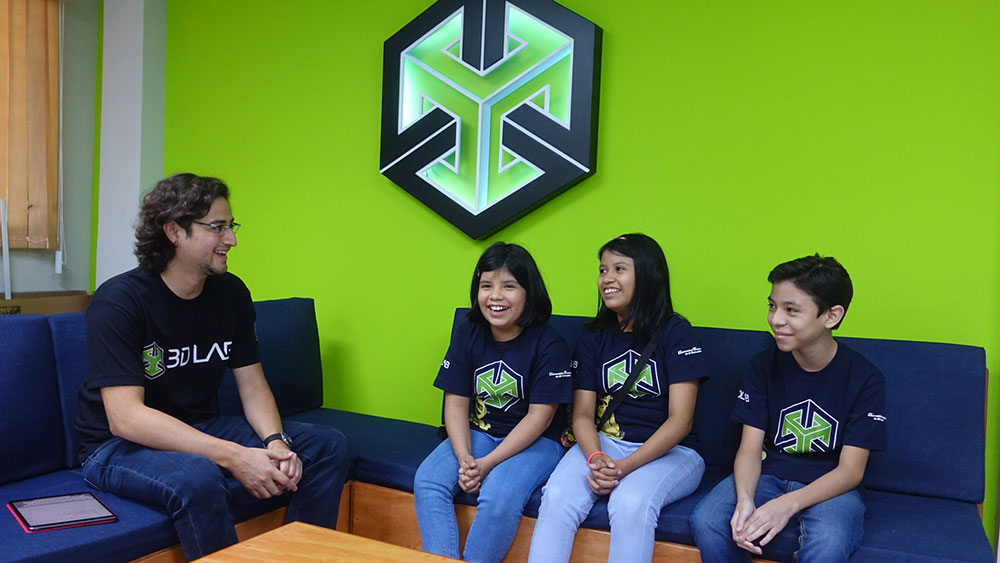
Nestor facilitating a robotics workshop for kids
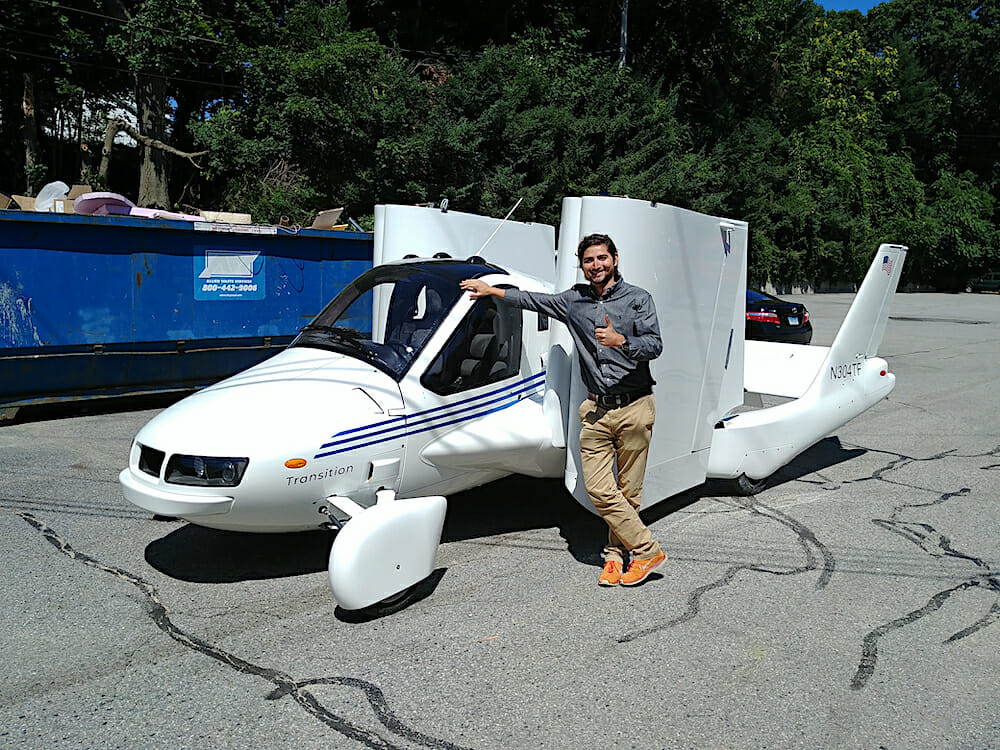
To Pd.D. or Not to Ph.D.
“I thought I needed more knowledge to research material science, so I started looking for a Ph.D. program online,” Nestor said. “I reached out to different professors and discussed opportunities with them. One day I said ‘screw this’ and started looking for new jobs instead. I came across a job post on Linkedin for a senior composites engineer position at a small company. I applied and the recruiter called me to schedule an interview. They flew me out to Boston to meet in person, and then I received the job offer.”
A Path Forward
Nestor then decided to seek opportunities in aerospace design. He was thrilled with a new job opportunity at flying car manufacturer Terrafugia. He would be working as a liaison between engineering and manufacturing to produce composite parts—materials with new capabilities, created from two or more substances that have different physical or chemical properties. The company also agreed to sponsor his H-1B visa as part of the job contract. As a small startup with enough funding, a focus on consumer products, and no government contracts, they were willing to hire Nestor without citizenship. Aware of his visa’s impending expiration date, Nestor began active steps toward citizenship. Luckily, the company is also sponsoring his green card process, with which he’ll have more employment stability.
Even with all of his successes in the US, Nestor still felt a pull back to El Salvador, and on a visit home, Nestor shared his dream of starting an academic laboratory with his grandfather, the vice president of a nearby university. Together with the support of the institution, they founded a 3D lab at the Technological University of El Salvador. They immediately got to work setting up the space and teaching design and fabrication skills to students. The space has since become the first designated FabLab at a university in El Salvador, giving them certification as part of a global community of makers who generate knowledge and exchange ideas.

